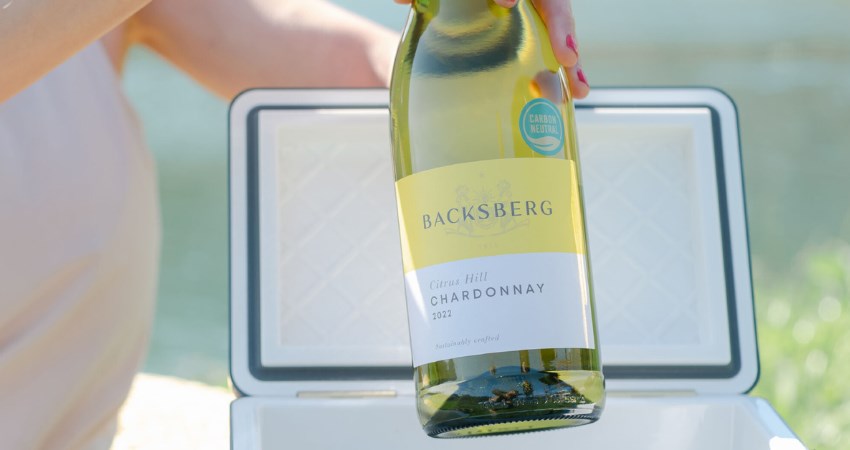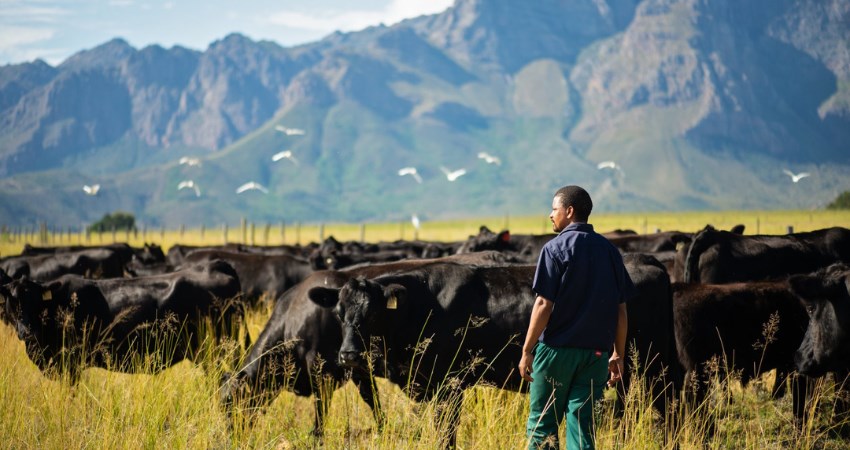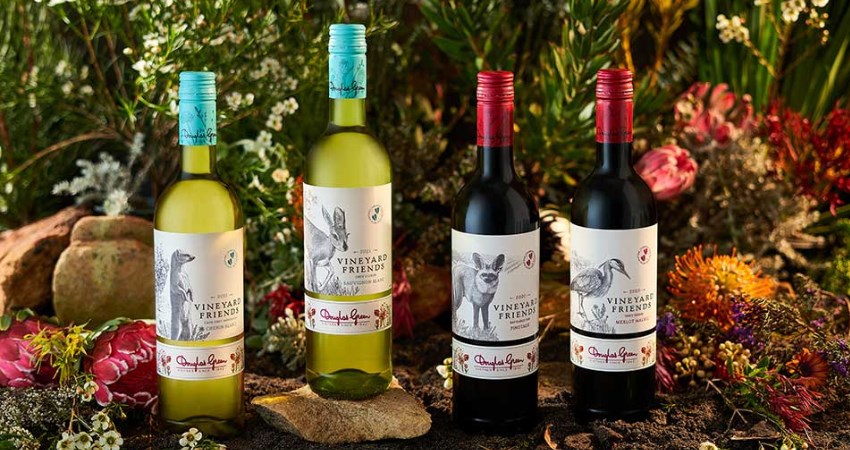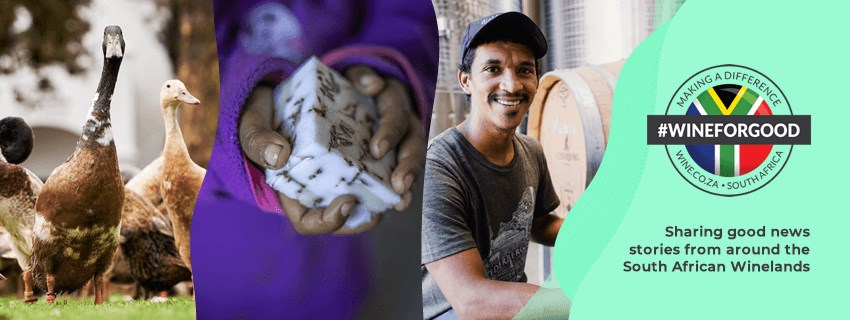In the world of wine, environmental consciousness is becoming increasingly vital, with producers worldwide championing eco-friendly practices. From vineyard management to packaging, forward-thinking wine producers are leading the charge towards a greener future. In South Africa, it is no different with a host of premium wine producers implementing innovative initiatives to drive positive environmental change from vine to bottle.
1. Backsberg
Since their 2022 vintage, the Franschhoek winery Backsberg has proudly carried the title of being the first fully verified carbon neutral winery in South Africa. This is a result of a plethora of efforts to assist in the carbon reduction and neutrality of the brand, including the offsetting of carbon emissions in conjunction with Credible Carbon on projects such as the Kuyasa Project.
The project is a low-carbon housing development in one of the poorest and most vulnerable corners of Khayelitsha, in the Western Cape. The project sees the installation of solar water heaters, ceilings, and compact fluorescent energy efficient lightbulbs in over two thousand homes.
Additional benefits of the project include reduced household expenditure on coal-fired electricity, local job creation, a reduction in local air pollution as well as additional support in an early childhood development project, through the setting up food gardens in the area.
Click HERE to learn more.

2. Boschendal
The wine estate and WWF Conservation Champion is a pioneer when it comes to their implementation of regenerative farming methods and techniques across the farm. The outcome-based farming system nurtures and restores soil health while protecting the climate, water resources and biodiversity.
One of the many initiatives implemented on the farm include the use of their pasture raised Black Angus cattle – the herd now sits at more than 950 in size. The cows improve soil quality by distributing manure and other decaying organic matter into the soil, turning it into rich humus. To further improve the quality, free range, pasture fed chickens in mobile units called ‘chicken tractors’ then follow the cattle. In addition to producing nutritious, free-range eggs for our restaurants, they spread cow manure thereby further fertilising the soil.
Through these efforts Boschendal provide a better life for the farm animals, produce fruit and vegetables of exceptional quality and nutritional value, while ensuring the land is taken care of for generations to come.
Click HERE to learn more.

3. Franschhoek Cellar
One of the gems of the Franschhoek wine route, Franschhoek Cellar has gone to great lengths when it comes to sustainability and creating positive environmental impact.
This includes an aerobic water treatment plant which treats more than 10 million liters of water every year. These systems treat effluent in an enclosed bio-reactor and release the cleaned water to irrigation dams. This has seen the rehabilitation of old effluent dams, which are now used to irrigate the gardens.
In addition to preserving water and avoiding water waste, an additional benefit of this project has been the welcome increase in wildlife activity returning to the surroundings of these dams.
Click HERE to learn more.
4. Vineyard Friends by Douglas Green
Wellington cellar and wine producer Douglas Green Winery – which has a range of wines named after unique creatures of the Cape Winelands – has the largest solar photovoltaic energy installation of any wine production facility in South Africa.
An 801 KW producing roof array of 2400 panels not only creates clean energy to be used in the winery and supplied to the neighbouring town and its communities, but also offsets 1265 tones of potential carbon dioxide emissions. The result is that 40% of the cellar’s electricity usage is now covered by this renewable solar energy.
This environmental investment, together with the use of lightweight bottles and 100% recycled paper labels, is helping Vineyard Friends to limit the carbon emissions of fossil fuel use and reduce their carbon impact.
Click HERE to learn more.

5. DGB
One of the country’s leading producers and distributors of premium South African wine, DGB are constantly ensuring they’re working towards a more sustainable future for both the planet and people. This includes their bamboo community project.
The company planted a bamboo farm as both a carbon offset action and a social upliftment project. As the fastest growing grass on earth, the carbon neutralising effect of the bamboo plant can be 35% more potent than most trees making a rapid impact on reducing carbon. In addition, bamboo has substantial and versatile commercial value with innumerable uses.
The harvesting is done by community, and they then use the crop to make bamboo garden accessories and poles for vineyards – income generated from sales is used to sustain and uplift the community.
Click HERE to learn more.

There are plenty of good news stories from the South African Winelands. The #wineforgood campaign, launched by wine.co.za in June 2016, is all about sharing these positive and uplifting stories. We dedicate the month of April to our #wineforgood campaign each year, sharing a good news story every day. Join us in spreading the good news about South African wine. If you'd like to submit a story, please email editor@wine.co.za.